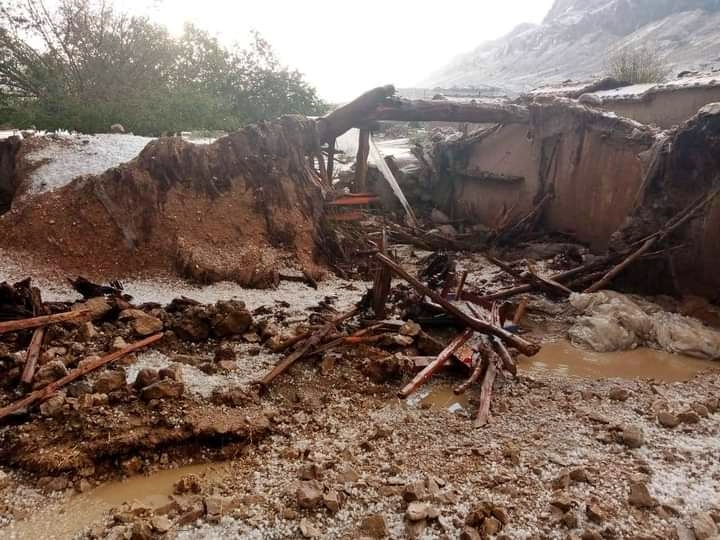QUETTA: Torrential rains killed seven people, including two children, and injured at least 25 in southwest Pakistan, a Provincial Disaster Management Authority (PDMA) official in Balochistan said on Sunday, adding that Dera Bugti district, about 360 kilometers from Quetta, was the most affected area.
Pakistan’s struggle with natural disasters intensified in 2022, as unprecedented monsoon rains wreaked havoc nationwide, claiming 1,700 lives and resulting in an estimated $35 billion in financial losses.
The country’s southern belt, including Balochistan, bore a significant brunt of the devastation.
Pakistan contributes less than one percent to global carbon emissions, though it ranks among the top ten nations most vulnerable to climate change.
“Relief operation is underway, and we have provided food items and tents to the affected,” Muhammad Younus, who supervises the PDMA emergency cell, told Arab News while confirming the number of fatalities. “Officials are doing the damage assessment survey.”

The photo taken on June 30, 2024, shows a house destroyed by torrential rains in the southwest Pakistan. (AN Photo)
Younus informed the province expected pre-monsoon rainfall early next month, starting from July 7.
“Relevant departments have been asked to clear the water channels before any disaster,” he added.
Speaking to Arab News, Riaz Ali, a resident of Sajjo Colony in Sui, a town in Dera Bugti district, said he lost his 17-year-old son a day earlier when the roof of a local restaurant collapsed due to heavy rain.
“It was 4 or 5 PM when the heavy rainstorm began and lasted for 30 minutes,” he recalled. “In the evening, I received a call from my neighbor, who works at a hospital, to tell me that my son had died. I went to the hospital to receive his body. He had been injured in his head.”
The current situation has reminded the residents of the province of the catastrophe two years ago when heavy rains led to flash floods that destroyed houses, agricultural fields and public infrastructure in the province.
Sannaullah Panezai, an associate professor of geography at the University of Balochistan, noted the rise in erratic weather patterns in Pakistan.
“Such rains mostly began by the end of July and lasted till September in the past,” he said, pointing out the region did not receive much rain in 2023. “Climate change has been affecting rainfall and causing flash floods.”
The recent rains in Balochistan have also caused concern for agricultural production in the area.
“Our garden of apples has been partially affected,” Fazal Deen, who has his own fields in Ziarat, told Arab News. “We have also planted vegetables on 10 acres of land that have been completely destroyed.”
















